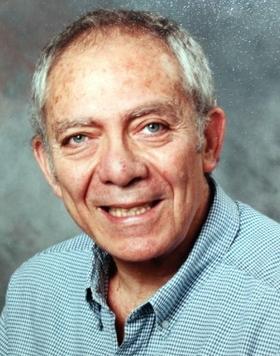Stanley Cohen (sociologist) facts for kids
Quick facts for kids
Stanley Cohen
|
|
|---|---|
 |
|
| Born | 23 February 1942 Johannesburg, South Africa
|
| Died | 7 January 2013 (aged 70) London, United Kingdom
|
| Era | 20th-century philosophy |
| Institutions | London School of Economics Durham University University of Essex Hebrew University of Jerusalem |
|
Main interests
|
juvenile delinquency, subculture, social control theory, human rights violations, |
|
Notable ideas
|
moral panic, normality of denial |
|
Influences
|
|
Stanley Cohen (born February 23, 1942 – died January 7, 2013) was a very important thinker in sociology and criminology. He was a professor at the London School of Economics. He was known for his ideas on how people manage their feelings, including when they ignore or overreact to things.
Stanley Cohen cared deeply about human rights. He grew up in South Africa, a country that had many human rights issues at the time. Later, he studied prisons in England and then worked on human rights in Palestine. He even started a special center at the London School of Economics to study human rights.
Contents
Stanley Cohen: His Life and Work
Early Life and Studies
Stanley Cohen was born in Johannesburg, South Africa, in 1942. His father was a businessman. As a young person, he was interested in Israel and planned to live there. He studied Sociology and Social Work at the University of the Witwatersrand. While studying, he became involved in fighting against apartheid, which was a system of unfair racial separation in South Africa.
In 1963, he moved to London, England. He worked as a social worker. Then, he went to the London School of Economics (LSE) to get his PhD. His research focused on how society reacted to young people who broke rules. At that time, there were famous youth riots involving groups called the Mods and Rockers. Stanley Cohen studied how newspapers reported these events and also interviewed people directly.
From 1967, he taught sociology at Durham University. During the student protests of 1968, he became interested in the anti-psychiatry movement. He also worked on projects about prisons. With another sociologist, Laurie Taylor, he wrote several books about what it was like to be in prison for a long time.
From 1972 to 1980, he was a professor at the University of Essex.
Working for Human Rights
In 1980, Stanley Cohen moved to Israel with his family. There, he became the head of the Institute of Criminology at the Hebrew University of Jerusalem. He worked with groups that fought against torture and tried to help with the Israeli–Palestinian conflict. This showed his strong commitment to human rights.
He returned to England in 1996 because he was diagnosed with Parkinson's disease. He became a professor at the LSE again and worked there until he retired in 2005. He received many awards for his important work. In 1998, he became a fellow of the British Academy, which is a great honor. He passed away on January 7, 2013, due to Parkinson's disease.
Stanley Cohen's Main Ideas
Stanley Cohen was a very important writer in the fields of criminology and sociology. He helped us understand how society reacts to different behaviors.
What is a Moral Panic?
One of Stanley Cohen's most famous ideas comes from his 1972 book, Folk Devils and Moral Panics. In this book, he looked at how the British media and society reacted to the Mods and Rockers. He showed how the media can sometimes overreact to certain behaviors, especially those that challenge normal rules.
He explained that when the media focuses a lot on a certain group or behavior, it can actually make that behavior seem more important or even encourage others to try it. This can create a "moral panic." A moral panic happens when society gets very worried about something that is seen as a threat to its values. The media often plays a big role in making these panics bigger.
Even though Stanley Cohen made the term "moral panic" famous, the idea had been around for a while. But his book really helped people understand how it works in modern society.
Understanding Denial
Stanley Cohen's last book, States of Denial: Knowing about Atrocities and Suffering (published in 2001), explored how people and governments avoid uncomfortable truths. He looked at why humans often ignore difficult realities, like poverty, suffering, or unfairness.
He asked a big question: How can people know about terrible things but also act like they don't know? He explained that people sometimes choose to ignore things that make them uncomfortable. For example, he wrote about how some people know that racial unfairness and suffering exist, but they might deny it or pretend it's not happening.
Stanley Cohen wanted to make people aware of how much we choose to ignore in society. He believed that if we understand how denial works, we can start to face these difficult truths and work towards making things better. Many people praised his book, saying it was a very important work on understanding why people deny what they know.
Personal Life
In 1963, Stanley Cohen married Ruth Kretzmer. She passed away in 2003. They had two daughters, Judith and Jessica.
Stanley Cohen was known for his love of jokes and his ability to laugh at himself. He was a very intelligent and thoughtful person who made a big impact on how we understand society and human behavior.
See also
 In Spanish: Stanley Cohen (sociólogo) para niños
In Spanish: Stanley Cohen (sociólogo) para niños
- Agnotology
- Denialism
 | George Robert Carruthers |
 | Patricia Bath |
 | Jan Ernst Matzeliger |
 | Alexander Miles |

